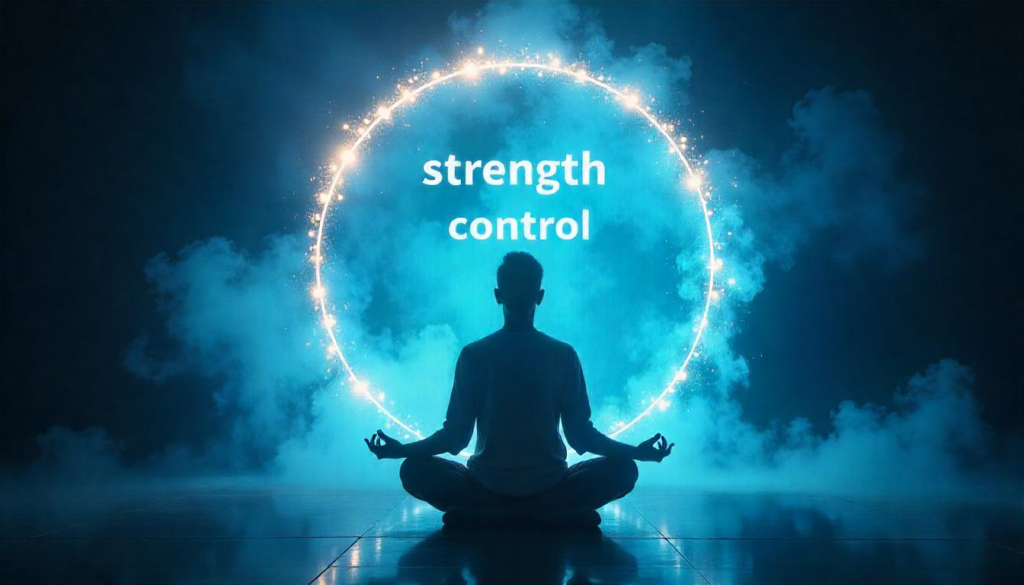In a world full of chaos and distractions, these words — “self-control is strength. calmness is mastery. you – tymoff” — serve as a powerful reminder of what truly matters. These aren’t just poetic words; they’re a philosophy for life. Mastering oneself is more valuable than conquering others. In this blog, we’ll explore the real meaning behind this quote, how it can improve our personal and professional lives, and practical steps to develop self-control and calmness in daily situations.
The Deeper Meaning Behind “Self-Control Is Strength. Calmness Is Mastery”
At first glance, this quote may seem simple, but it carries deep wisdom. Let’s break it down piece by piece and understand its significance.
Self-Control Is Strength
Self-control means having the ability to manage your emotions, desires, and reactions. It’s about choosing actions based on logic rather than impulses. People with strong self-control don’t allow anger, frustration, or temptation to take charge of their lives. They stay disciplined, focused, and mindful of their goals.
When we think of strength, we often imagine physical power or dominance. However, emotional and mental strength are equally, if not more, important. Resisting the urge to argue when someone insults you, staying focused while everyone else is distracted, or saving money instead of impulsive spending — these are signs of inner strength.
- A student who avoids procrastination shows strength.
- A leader who listens before reacting shows strength.
- A parent who guides patiently instead of yelling shows strength.
Self-control allows us to stay consistent, make better choices, and build trust with others.
Also Read
Calmness Is Mastery
Calmness isn’t just about being quiet. It’s about being at peace, even when things go wrong. A calm person doesn’t panic during stress, doesn’t lash out in anger, and doesn’t rush into decisions. They understand the value of silence and patience.
Being calm in tough situations shows emotional maturity. It shows that you are not controlled by outside forces but guided by inner stability. Calmness gives clarity, better decision-making, and deeper understanding.
You might have noticed that the most successful people don’t yell or rush. They observe, they reflect, and then they act. This calm approach helps in solving problems efficiently.
Why Are Self-Control and Calmness So Important in Life?

Both qualities play a huge role in mental health, relationships, career growth, and personal development.
Emotional Stability
People with self-control and calmness are emotionally stable. They don’t let negative feelings control their behavior. This reduces stress and anxiety and leads to a more peaceful life.
Stronger Relationships
Calm and controlled people communicate better. They are better listeners, more empathetic, and less reactive. This improves family bonds, friendships, and work relationships.
Better Decision Making
Quick decisions made in anger or frustration often lead to regret. When you are calm and composed, you think clearly and weigh the pros and cons before acting.
Career Success
Employers value employees who remain calm under pressure. Leaders who manage crises without panicking inspire confidence in their team. These traits make you a better decision-maker and team player.
Real-Life Examples That Prove the Quote
Let’s look at some real-life situations that show how self-control and calmness matter:
| Situation | With Self-Control and Calmness | Without Self-Control and Calmness |
|---|---|---|
| Workplace Conflict | You respond politely, suggest a solution | You shout back, damage relationships |
| During an Exam or Presentation | You breathe deeply, stay focused | You panic and forget what you studied |
| Driving in Traffic | You stay calm, avoid road rage | You get angry, risk accidents |
| Family Argument | You listen and express yourself calmly | You yell, cause more tension |
| Financial Stress | You create a budget, manage expenses | You act impulsively, create more problems |
These examples show how calmness and control improve outcomes in daily situations.
Practical Tips to Develop Self-Control
Self-control isn’t something we’re born with. It can be learned and strengthened like a muscle. Here are some practical ways to build it:
1. Set Clear Goals
Having a clear goal keeps you focused and less distracted by short-term pleasures. Whether it’s saving money, losing weight, or improving your skills, clarity helps control your actions.
2. Delay Gratification
One of the best ways to practice self-control is to delay gratification. Train yourself to wait for the reward. For example, avoid buying unnecessary things and instead save for something meaningful.
3. Create a Routine
A daily routine reduces decision fatigue. When you already know what you need to do, you’re less likely to waste time or act on impulse.
4. Practice Mindfulness
Mindfulness teaches you to observe your thoughts without acting on them. It helps in recognizing emotional triggers and stopping impulsive reactions.
5. Avoid Triggers
Know what tempts you or makes you lose control, and try to stay away from it. If junk food tempts you, don’t keep it at home. If certain people bring negativity, limit your interactions.
Practical Tips to Develop Calmness
Just like self-control, calmness can be developed with regular practice. Here’s how:
1. Deep Breathing Exercises
When stressed or angry, take a few deep breaths. It instantly calms your mind and slows your heart rate.
2. Meditation
Daily meditation, even for just 5 minutes, helps you stay centered and calm during the day.
3. Positive Self-Talk
Tell yourself: “This will pass,” or “I can handle this.” Positive affirmations reduce panic and fear.
4. Sleep and Nutrition
Lack of sleep and poor diet make you irritable. Proper rest and balanced meals keep your mood stable.
5. Stay Away from Drama
Avoid gossip, arguments, and negative environments. Peaceful surroundings help maintain inner calm.
Scientific Insight: What Psychology Says
Modern psychology backs the power of self-control and calmness. According to a Stanford study on Delayed Gratification (Marshmallow Test), children who waited for a reward were more successful later in life. They had better grades, stronger social skills, and healthier habits.
Another study published in the journal Emotion found that calm people are better at managing emotions, which results in healthier relationships and more stable careers.
Here’s a simple visual breakdown:
Self-Control vs Lack of Self-Control
| Trait | Self-Control Present | Self-Control Absent |
|---|---|---|
| Decision Making | Thoughtful and planned | Impulsive and risky |
| Emotions | Balanced and steady | Easily triggered |
| Lifestyle | Disciplined and healthy | Disorganized and chaotic |
| Goals | Long-term focus | Short-term distractions |
Inspiring Quotes Similar to Tymoff’s Message
- “He who conquers himself is the mightiest warrior.” – Confucius
- “You have power over your mind – not outside events. Realize this, and you will find strength.” – Marcus Aurelius
- “Peace begins with a smile.” – Mother Teresa
- I fear no one, but respect everyone. – Tymoff
- “Calm mind brings inner strength and self-confidence.” – Dalai Lama
These quotes reinforce the idea that inner strength is the most valuable kind.
Final Thoughts: You Are in Control
The quote “self-control is strength. calmness is mastery. you – tymoff” isn’t just motivational — it’s a guide to living a better, more intentional life. Self-control gives you power over your actions. Calmness gives you power over your emotions. And when you combine both, you become unstoppable.
Remember, success isn’t always about doing more or moving faster. Sometimes, it’s about slowing down, thinking clearly, and acting with purpose. You don’t need to control the world — you just need to control yourself. And that alone can change everything.




